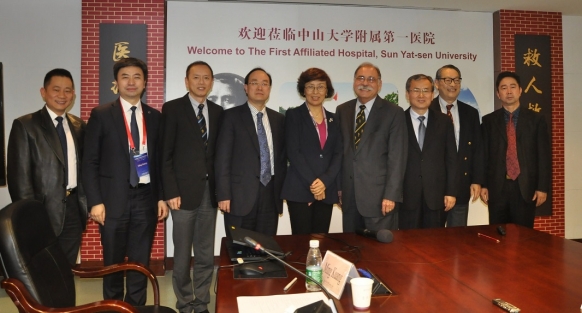Self-Study for Educational Reform at China’s Elite Teaching Hospitals

The China Consortium of Elite Teaching Hospitals for Residency Education Consortium was launched in 2015 to spearhead reform of residency education in the country. Six members of the Consortium are pursuing reform through conducting self-studies of their respective programs. At a March workshop in Guangzhou, supported by CMB, 40 participants representing 6 elite hospitals shared their preliminary assessments on the strengths and weaknesses of their residency education programs, as well as future opportunities and challenges. Participating Consortium members were hospitals from Central South University (Xiangya), Fudan University, Peking Union Medical College, Sichuan University, Sun Yat-sen University, and Zhejiang University.
In the workshop presentation, former CMB Trustee Tom Inui summarized some of the key findings thus far from the self-study exercise. As elite medical institutions, Consortium members believe in the quality of their work, their academic culture, and the strength of their faculty. At the same time, residency education would benefit from strengthening evaluation and feedback; raising levels of professionalism; and introducing progressive, stage-based residency learning rotations. The elite hospitals see opportunities to strengthen their programs through collaboration with others, introducing IT innovations, and creating opportunities for dissemination of best practices. They recognize the challenges presented by uncertain career prospects for general practitioners, tense working environments, and recruitment overload.
The Consortium’s goals align with the National Health and Family Planning Commission’s goal of demonstrating reforms in 6 elite hospitals essential for spearheading the quality of postgraduate medical education in China’s 26,000 hospitals.
